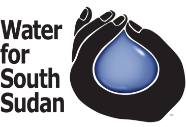Background
As of 2021, about 40% of South Sudanese households have access to basic drinking water sources—approximately 2% of households have water on the premises.
Nearly 32% of the population consumes contaminated water from unimproved sources, and waterborne diseases are among the top causes of death in children under five years of age. More importantly, the human resource (labor or workforce) necessary for monitoring and strengthening policy regulations that support water quality improvement is inadequate.
In June 2021, W12+ and WFSS co-hosted a roundtable workshop with key stakeholders from the government, local civil society, INGOs, and more, working on water issues in South Sudan. Here, stakeholders highlighted a gap in training and education in the water sector as one of the country’s top priorities. In response, this expert group established the need for a training institute that would build human capacity to monitor and manage drinking water quality. For local stakeholders, the training institute is vital for improving the country’s WASH status and the quality and amount of data that inform government decision-making.
Maiwut hand dug well
Water Institute trainees 2023
Plot #600 Block-E-Extension, Eastern Bank, Wau, WBG, South Sudan



